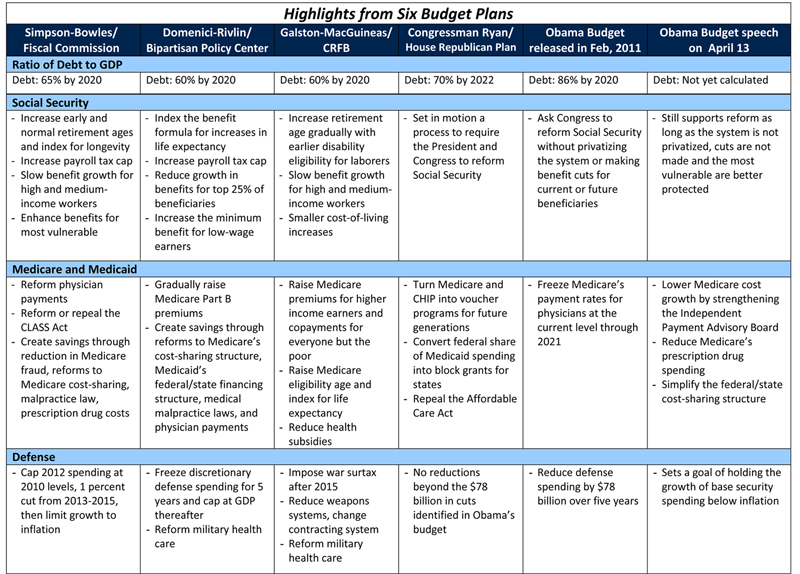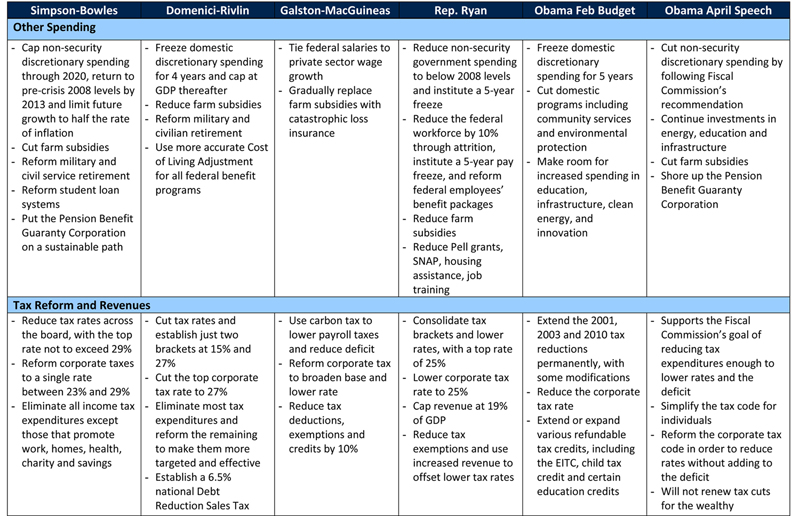In a forceful speech on long-term fiscal policy, President Obama offered his vision of America's future, described how our fiscal situation deteriorated to the point that we must change course, and laid out his plan for reducing the deficit by $4 trillion over the next 12 years through a combination of spending cuts and revenue increases. Acknowledging that most Americans do not understand the composition of federal spending, he began the task of public education by outlining how little of the public's money actually goes to favorite whipping-boys such as foreign aid.
The president sharply criticized the plan Rep. Paul Ryan (R-WI) offered last week on behalf of the House Republican majority. The Republican cuts, he declared, "tell us we can't afford the America we believe in. And they paint a vision of our future that is deeply pessimistic." Their vision, he charged, is "less about reducing the deficit than it is about changing the basic social compact." He contrasted Republicans' vision for the nation with "the America I know," which is "generous and compassionate; a land of opportunity and optimism," a country in which we "take responsibility for ourselves and each other."
Obama's speech left many things unspecified -- not only the composition of many budget cuts and revenue increases, but also how his proposed spending trigger would work and what the debt-to-GDP ratio, a crucial measure of fiscal sustainability, would be in 12 years if his plan were adopted. But one thing was clear: the president has decided to come off the sidelines and participate actively in the debate. He called for negotiations involving both parties and both houses of Congress as well as the White House to begin in early May.
This discussion will be neither short nor easy. While it must reach some concrete agreements prior to a vote to raise the debt ceiling (a linkage the president seems to have accepted), many important issues are bound to be left unresolved by the president's target date of late June. This momentous fiscal debate will probably dominate the 112th Congress and shape the 2012 presidential contest as well.
Here are the six major budget proposals, and their differences:

